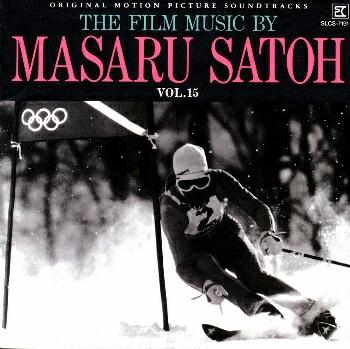

© 1999, 2014 Lawrence Tuczynski
| Title | The Film Music By Masaru Satoh Vol. 15 |
| CD Label | SLC Inc. |
| CD Number | SLCS-7191 |
| Music by: | Masaru Satoh |
| Number of tracks | 13 |
| Running time | 71:15 |
| Number of discs | 1 |
| Year of release/manufacture | 1993 |
| REVIEW |
Feb. 12, 2000 Nice sounding CD with a mix of styles. Track #1, "Sapporo Olympic", starts off with a driving beat and nice drum work. Later on the music slows down and we hear some strains of "Born Free" mixed in. Track #3, "Poetry Of Africa", lives up to it's name. This music will remind you of all the gentle jungle music you may have heard in the past. Track #5 has a few sections where we hear some guitar music. I don't remember hearing much else by Mr. Satoh that uses the guitar. Again, this is something you listen to when you want quiet, relaxing music. It's definitely not what you'd listen to as you exercise. I enjoy this music as I have others in this series and they are all relaxing pieces for the most part. Listening to Mr. Ifukube and Mr. Satoh is like the difference between day and night. Their styles are so different from one another but both are easy to listen to and are likeable forms of music. |
| REVIEW |
Title: The Film Music By Masaru Satoh Vol. 15 (DOCUMENTARY & TV)
|